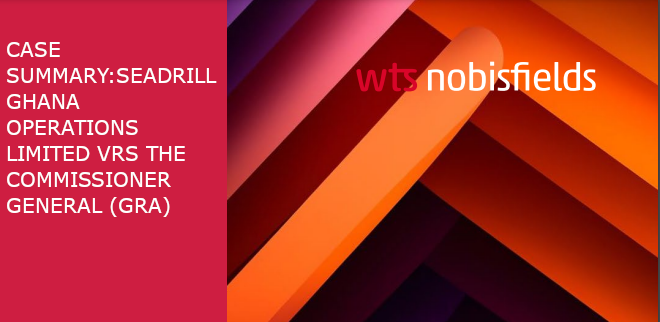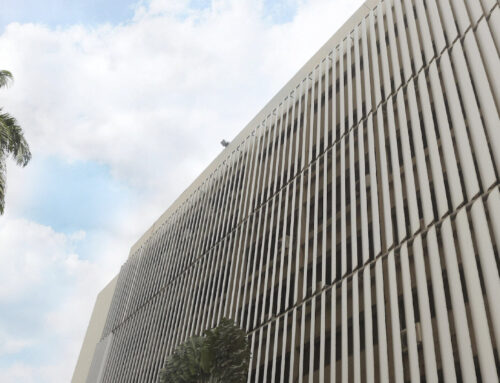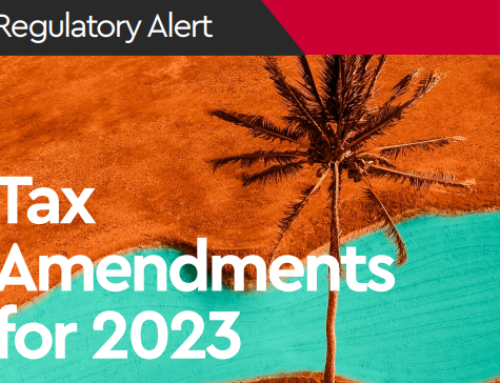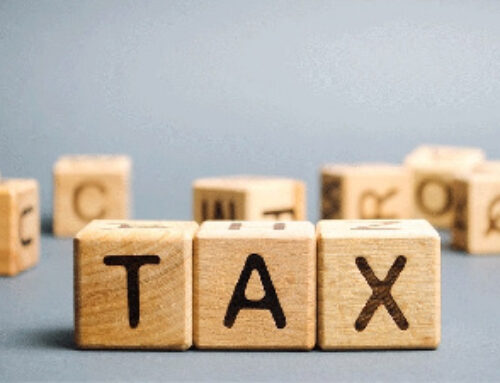SEADRILL GHANA OPERATIONS LIMITED VRS THE COMMISSIONER GENERAL (GRA)
CASE IN THE COURT OF APPEAL
BACKGROUND OF THE CASE
In 2019, the Ghana Revenue Authority (GRA) in exercise of its statutory duty conducted a tax audit of Seadrill Ghana Operations Limited from January 2012 to December 2018. Seadrill was a subcontractor to Tullow Ghana Limited, providing a drilling unit and associated drilling services under the Petroleum Agreement dated 10th March 2006. At the end of the tax audit, Ghana Revenue Authority in a letter dated 8th November 2019 assessed tax liability against Seadrill Ghana Operations Limited in the sum of US$ 305,606,164.19.
Seadrill Ghana Operations Limited submitted a formal objection to the decision through a letter dated the 11th of December 2019. As part of the objection process, Seadrill Ghana Operations Limited was required by statute to make a down payment amounting to 30% of the assessed tax to the Ghana Revenue Authority. Ghana Revenue Authority considered the objection and revised the tax liability to US$10,222,849.35. Seadrill Ghana Operations Limited remaining dissatisfied with the decision filed a subsequent objection in a letter dated 28th July 2020. The objection again received a favorable response as Ghana Revenue Authority further reduced the tax liability from US$10,222,849.35 to US$5,448,152.65. Seadrill Ghana Operations Limited again displeased with the decision, objected to same, which was later disallowed by the GRA.
Seadrill Ghana Operations Limited proceeded to file both a notice of appeal against the tax assessment at the Commercial Division of the High Court and an application for an interlocutory injunction on 20th November 2021. Upon being served with notice of appeal, Ghana Revenue Authority filed an application for an order to strike out and dismiss Seadrill’s notice of appeal. Seadrill Ghana Operations Limited also filed an affidavit in opposition to Ghana Revenue Authority’s motion on notice.
The trial judge following a careful consideration of the processes filed and the arguments of the parties upheld the objection of the Ghana Revenue Authority and struck out the appeal of Seadrill Ghana Operations Limited as incompetent. Seadrill Ghana Operations Limited aggrieved by the ruling of the High Court filed a notice of appeal to the Court of Appeal.
GROUNDS OF APPEAL
1. The Learned Judge erred in his interpretation and application of the Commissioner General’s powers and review under the law.
2. The Learned Judge erred that Ghana Revenue Authority ‘s letter dated 1st December 2020 is not a tax decision to be objected to.
3. The Learned Judge erred in holding that although the 1st December 2020 letter is an amended tax decision under Section 42(9) of the Revenue Administration Act 2016 (Act 915), the 1st December 2020 letter cannot be subject to an objection.
4. The Learned Judge erred in holding that Seadrill Ghana Operations Limited’s letter of 30th December 2020 is not an objection to a tax decision.
5. The Learned Judge erred in holding that the Ghana Revenue Authority’s letter of 8th October 2021 is not an objection decision.
6. The ruling is against the weight of the evidence.
THE APPELLANT’S CASE
1. The Learned Judge failed to apply Sections 41(1), 37(3) and 37(6) of the Revenue Administration Act 2016 (Act 915) to hold that an adjusted tax assessment is a tax decision that can be objected to. Applying these provisions will lead to the conclusion that the 1st December 2020 letter was a tax decision that it could have objected to.
2. By reason of Section 37(5)(b)(ii) and (iii) and Section 39(3), the Ghana Revenue Authority had the power to adjust its tax assessment. Consequently, the Ghana Revenue Authority could adjust the 1st December 2020 decision.
3. Having argued that the 1st December 2020 letter was a tax decision as defined in Section 42(1) of Act 915, Seadrill Ghana Operations Limited could object to that decision.
4. The Learned Judge misapplied Section 42 of Act 915 in holding that a single objection to a tax decision is allowed under Act 915. Nowhere in Act 915 is the number of objections a taxpayer can file limited to only one.
5. The Ghana Revenue Authority was construed by the principle of legitimate expectation since its first and second objection had revealed inaccuracies in the tax assessed leading to the Ghana Revenue Authority adjusting its original assessment.
6. Pursuant to Section 43 of Act 915 and a reading of Ghana Revenue Authority‘s letter to Seadrill Ghana Operations Limited dated 8th October 2021, the said letter was an objection decision. The fact that the objection was disallowed did not change its characteristics as an objection decision.
THE RESPONDENT’S CASE
1. The trial Judge did not err in his judgement as he gave due regard to all relevant provisions as well as all attached exhibits and submissions made by the parties.
2. The Commissioner General under Section 37(5)(b)(ii) and Section 39(3) of Act 915 has the power to adjust any tax assessment, the exercise of that power is in respect of self-assessment or where the person failed to file a tax return on time as required by law. The adjustment is carried out by The Commissioner General using his best judgement or based on the discovery of fraud, willful default, or serious omission by or on behalf of a tax paper. Ghana Revenue Authority contended that the above provision was inappropriate in the determination of the present appeal.
3. A decision made after an objection does not constitute a tax decision within the meaning of section 43 of Act 915.
4. Once the Ghana Revenue Authority makes an objection decision reviewing or adjusting a tax decision, the objective decision qualifies as a tax decision within the meaning of Section 37(5)(b)(iii) and 39(3) of Act 915.
DECISION OF THE COURT
Ground I, II and III
The Court believed Ground I, II and III were unmeritorious. It was stated that an amendment or adjustment to an objection decision did not convert the amended or adjusted objection decision into a tax decision. The submissions and interpretation given to Section 42(9) of Act 915 by Seadrill Ghana Operations Limited may be unreasonable. The court reasoned that, once the amended objection decision becomes a tax decision, Seadrill Ghana Operations Limited would have been mandated by Section 42(5) of Act 915 to pay 30% of a tax in dispute as the objection deposit. On the contrary, there was no evidence on record that it paid 30% of the tax in dispute upon submission of its letter dated 28th July 2020. Neither was there any evidence that Seadrill Ghana Operations Limited paid 30% of the disputed tax upon submission of the letter dated 30th December 2020.
Ground IV
The Court dismissed this ground of appeal. The court held that a tax decision can be objected to in the first instance. If the objection yields an amendment or adjustment, it becomes an objection decision. Should the taxpayer be dissatisfied with the objection decision made by the Commissioner-General, the taxpayer may appeal against the decision to the court within 30 days (Section 44 of the Revenue Administration Act, 2016 (Act 915) and Order 54 rules 1 and 2 of the High Court (Civil Procedure) Rules 2004 C. I. 47. The court added that, before a taxpayer can lodge an objection to a tax decision, he is mandated by Section 42(50 of Act 915 to pay objection deposit. On the other hand, the only objection deposit paid by the Appellant was made in respect of the first objection filed against the tax decision.
On the issue of the Respondent being constrained by the principle of legitimate expectation, the court opined that there are specific provisions in the Revenue Administration Act, 2016 (Act 915) which deals with resolution of tax disputes. The provisions cannot be sidestepped for an expectation which is not backed by law.
Ground V
The Court affirmed the Learned Judge’s decision, stating that the letter of 30th December 2020 did not constitute an objection. It followed that the Ghana Revenue Authority letter of 8th October 2021 could not be considered an objection decision. The objection decision was the Ghana Revenue Authority letter dated 1st December 2020. The Appellant instead of filing an appeal as provided in Section 44 of the Revenue Administration Act, 2016 (Act 915) and Order 54 Rules 1 and 2 of the High Court (Civil Procedure) Rules, 2004 within thirty (30) days of receipt of the
decision, rather requested a review of the objection decision. The learned Judge therefore was not in error when striking out the Appeal as having been filed out of time.
IMPLICATIONS AND KEY TAKEAWAYS OF THE HIGH COURT’S DECISION
· A tax decision is a decision made by the Commissioner-General under a tax law including an assessment or omission.
· Before a taxpayer can lodge an objection to a tax decision, the taxpayer is mandated by Section 42(5) of Act 915 to pay an objection deposit.
· In the case of import duties and taxes, all outstanding taxes including the full amount of the tax in dispute must be paid and in the case of other taxes, all outstanding taxes including thirty percent of the tax in dispute must be paid.
· An objection to the tax decision at the GRA must be made within thirty days of being notified of the tax decision.
· A tax decision can be objected to in the first instance. If this objection yields an amendment or adjustment, it becomes an objection decision.
· If a taxpayer is dissatisfied with an objection decision, he must file an appeal against the decision to the court within thirty (30) days upon receipt of the decision rather than request to GRA to review of the objection decision.
· There are specific provisions in the Revenue Administration Act,2016 (Act 915) which deal with resolution of tax disputes. These provisions cannot be ignored for an expectation which is not backed by law.
CONCLUSION
In summary, the Court of Appeal dismissed all the grounds presented by Seadrill Ghana Operations Limited and upheld the entire judgement of the High Court. The Court therefore concluded the following.
First, after the objection decision under section 43 of Act 915 was made, the adjustment did not convert the amended objection decision into a tax decision. What constitutes a tax decision is clearly spelled out in section 41(1) of Act 915. In addition, the objection decision was Ghana Revenue Authority’s letter dated 1st December 2020. Seadrill Ghana Operations Limited ought to have filed and appeal against the objection decision to the Court within thirty (30) days upon receipt of the objection decision instead of requesting a review of the objection decision by GRA.




